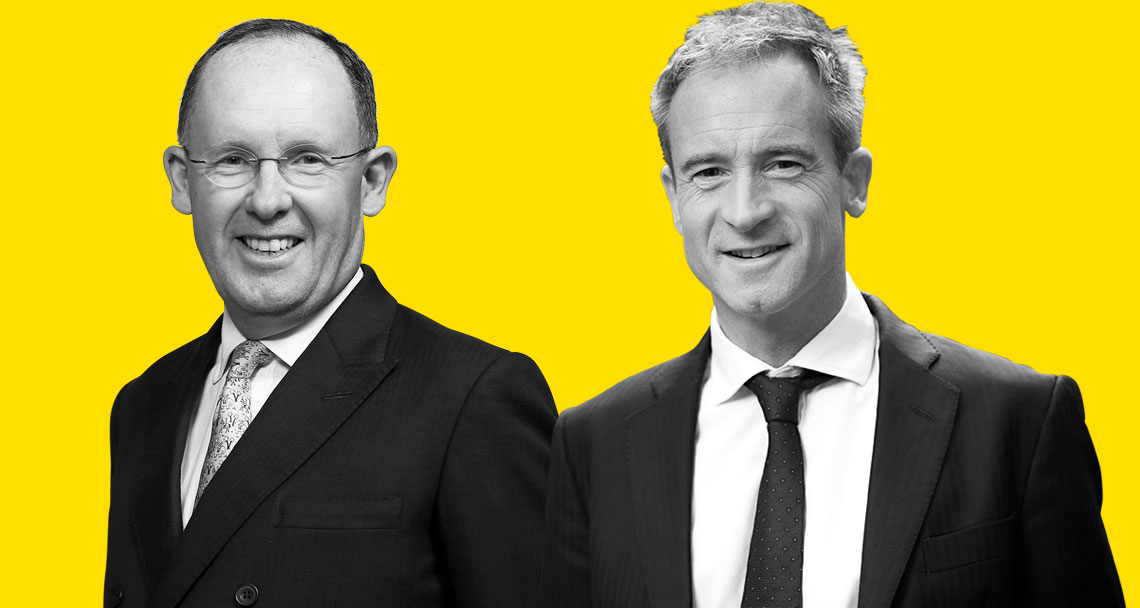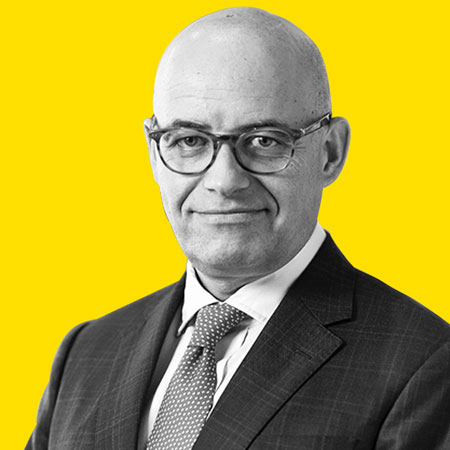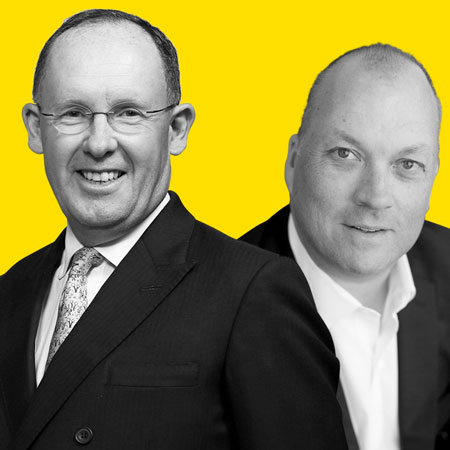Global investors are at the forefront of change. They spearhead investments in emerging sectors and provide leadership for transformational issues, such as sustainability, climate risk and the move to more operational real estate models.
Simon Hope, Head of Global Capital Markets for Savills (left), speaks to Michael Neal, Chief Investment Officer, Real Estate, Europe & Asia-Pacific, Nuveen (right), about his approach to these major shifts.
Simon Hope How do you differentiate your strategy to attract global investors?
Michael Neal One way we are doing this is to provide a global solution based on investing in real estate in resilient cities. Our European Cities Fund resonated with investors and we did the same with Asia-Pacific. Both filter cities based on factors including demographic and technological change, sustainability, liquidity and transparency that will define how these cities perform. It is a unique strategy for long-term investment where we can be confident of investing through cycles. The assets that we invest into in these cities will have longevity, provide the income characteristics and the return profile that we need.
SH Which cities stand out with this approach?
MN In Asia-Pacific, there are 11 principal investment cities that have been selected, and six progressive cities. We made our first investment with that strategy in the liquid markets of Tokyo, Seoul and Sydney in the logistics, office and multifamily housing sectors.
SH As real estate becomes more operational, how do you ensure you have the right expertise across the range of sectors?
MN The operational aspects of changing sectors like retail or alternatives, such as housing can be challenging. Investment advisors like ourselves can’t do it all. We need operating partners to be able to find solutions for our clients. One example is where we partnered with Milestone for a pan-European student accommodation strategy on behalf of a US client.
SH Where does ESG fit in to your investment agenda?
MN ESG considerations are incorporated into all the investment thinking that we undertake, and our sustainability team inputs into every investment decision. Climate change and the necessity for carbon emission reduction will lead to stranded assets in the future. We believe renovation to core strategies will become more prevalent where the energy consumption that has gone into the construction of the slab and frame are preserved. We are currently working on a number of projects like this.
SH Do you see long-term implications on real estate from the Covid-19 epidemic?
MN The most likely lasting impact on real estate is an acceleration of the structural changes that were already taking place as consumers and service providers have been forced to change behaviours. The clear example is the increasing use of online shopping leading to stronger logistics demand.
For industrial and logistics, ‘re-shoring’ is also likely with manufacturers and suppliers realising that they cannot rely on one supplier in one region. They will look for new sources to shorten supply chains. In Europe, this could create opportunities in lower-cost locations, such as Eastern Europe, Turkey and North Africa.
Consolidation is likely in the co-working segment of the office market and, more broadly, companies will demand higher-quality fit outs with a real focus on wellbeing and flexibility.
For real estate investment, we expect even greater focus on business resiliency and the business criticality of occupied assets. Fundamentally, real estate investment is about determining the resilience and growth potential of an income stream to determine the
appropriate multiple. This pandemic has brought that simple equation under even great scrutiny.




